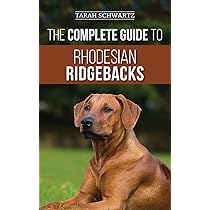
Understanding Rhodesian Ridgeback Puppies
Characteristics of Rhodesian Ridgeback Puppies
Rhodesian Ridgeback puppies are not just adorable balls of fur; they possess unique traits that make them stand out as a breed. Known for their graceful appearance and remarkable physical capabilities, these dogs can quickly capture the hearts of their owners. Here are some key characteristics to be aware of:
- Appearance: Ridgeback puppies have a distinct ridge of hair along their spine that grows in the opposite direction, setting them apart. Their muscular build, large paws, and deep-set eyes give them an athletic look.
- Temperament: They are known for being intelligent, loyal, and affectionate. This breed forms strong bonds with their families, making them excellent companions.
- Energy Levels: Rhodesian Ridgebacks are energetic and require regular exercise to stay healthy and happy. Daily walks, playtime, and mental stimulation are essential for their well-being.
- Trainability: This breed is highly trainable but can also display a stubborn streak. Consistent, positive reinforcement training methods work best, as they respond well to rewards.
A friend once shared how their Ridgeback puppy, Leo, was both a handful and a joy. Leo kept everyone on their toes with his playful antics while charming the family with his sweet, loving nature.
History and Origins of the Rhodesian Ridgeback Breed
The Rhodesian Ridgeback’s history dates back to the African continent, where they were bred by Khoikhoi tribesmen. Originally known as “African Lion Hounds,” these dogs were essential in hunting lions and safeguarding their owner’s livestock.
- Origin: The breed developed in present-day Zimbabwe (formerly Rhodesia) and mixed with various breeds, including the Great Dane and Bloodhound, which contributed to their strength and agility.
- Purpose: Initially, the Ridgeback was a versatile hunter, skilled at tracking and chasing down large game. Their ability to stand against lions was both impressive and vital for survival in the harsh African terrain.
- Recognition: The American Kennel Club officially recognized the Rhodesian Ridgeback breed in 1955, and since then, they’ve gained popularity as family pets and show dogs, admired for their loyal nature and striking appearance.
Understanding the rich history and characteristics of Rhodesian Ridgeback puppies can prepare prospective owners for the joys and challenges that come with this remarkable breed. Whether you’re considering bringing home a puppy or just want to learn more about them, these insights provide a foundational understanding of their unique traits and heritage.
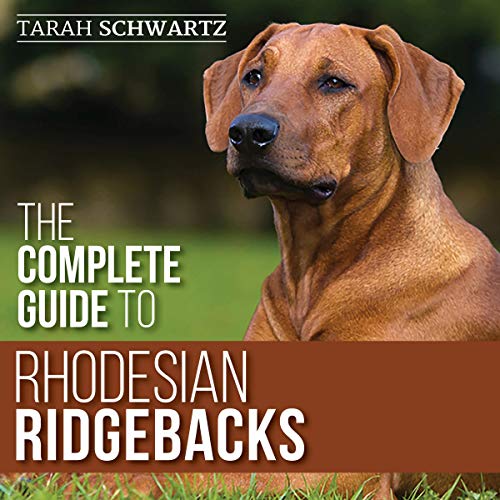
Finding Reputable Rhodesian Ridgeback Breeders
Researching and Identifying Responsible Breeders
When it comes to welcoming a Rhodesian Ridgeback puppy into your family, selecting a responsible breeder is crucial. The right breeder can make all the difference in ensuring you receive a healthy, well-socialized puppy. Here are some tips to help you identify reputable breeders:
- Breed Clubs: Start by checking with the Rhodesian Ridgeback Club of the United States or similar breed clubs in your area. These organizations often have breeder referrals, providing a list of breeders who adhere to their ethical standards.
- Health Testing: A responsible breeder conducts health screenings for genetic issues common in Ridgebacks, such as hip dysplasia and dermoid sinus. Ask for documentation of these tests.
- Experience and Knowledge: Look for breeders who possess a deep understanding of the breed. They should be able to answer questions about temperament, training, and health specific to Ridgebacks.
- References and Reviews: Seek out testimonials from previous puppy buyers. Personal stories can provide valuable insights into the breeding practices and the support you can expect.
A friend of mine discovered their Ridgeback through careful research. After reviewing several breeders, they found one who passionately shared her knowledge about the breed, increasing their confidence in their choice.
Visiting Breeding Facilities and Evaluating Breeder Practices
Once you’ve identified potential breeders, visiting their facilities is the next important step. Observing the environment where the puppies are raised can provide valuable clues about the breeder’s practices. Here are key aspects to evaluate:
- Cleanliness: The breeding area should be clean and well-kept. Healthy puppies begin with healthy living conditions.
- Puppy Interaction: Observe how the puppies interact with humans and their siblings. Playful, curious puppies signal a nurturing environment.
- Parent Dogs: Meet both the puppy’s parents, if possible. Responsible breeders generally have well-cared-for, friendly dogs who exhibit good temperament.
- Breeder Communication: Pay attention to how the breeder communicates with you. They should be open to questions and willing to share their knowledge. A good breeder will want to ensure that their puppies go to suitable homes.
Personally, visiting a breeder’s facility helped solidify my decision to adopt. The connection with the puppies and their parents was heartwarming; their happiness radiated, ensuring me that I would be entering a loving family with my new Ridgeback.
Finding a reputable breeder requires effort but is a vital step to ensure you’re welcoming a healthy, well-adjusted Rhodesian Ridgeback into your home. Your thorough research and careful evaluation during this process will lead to not just a puppy, but a cherished companion for many years to come.
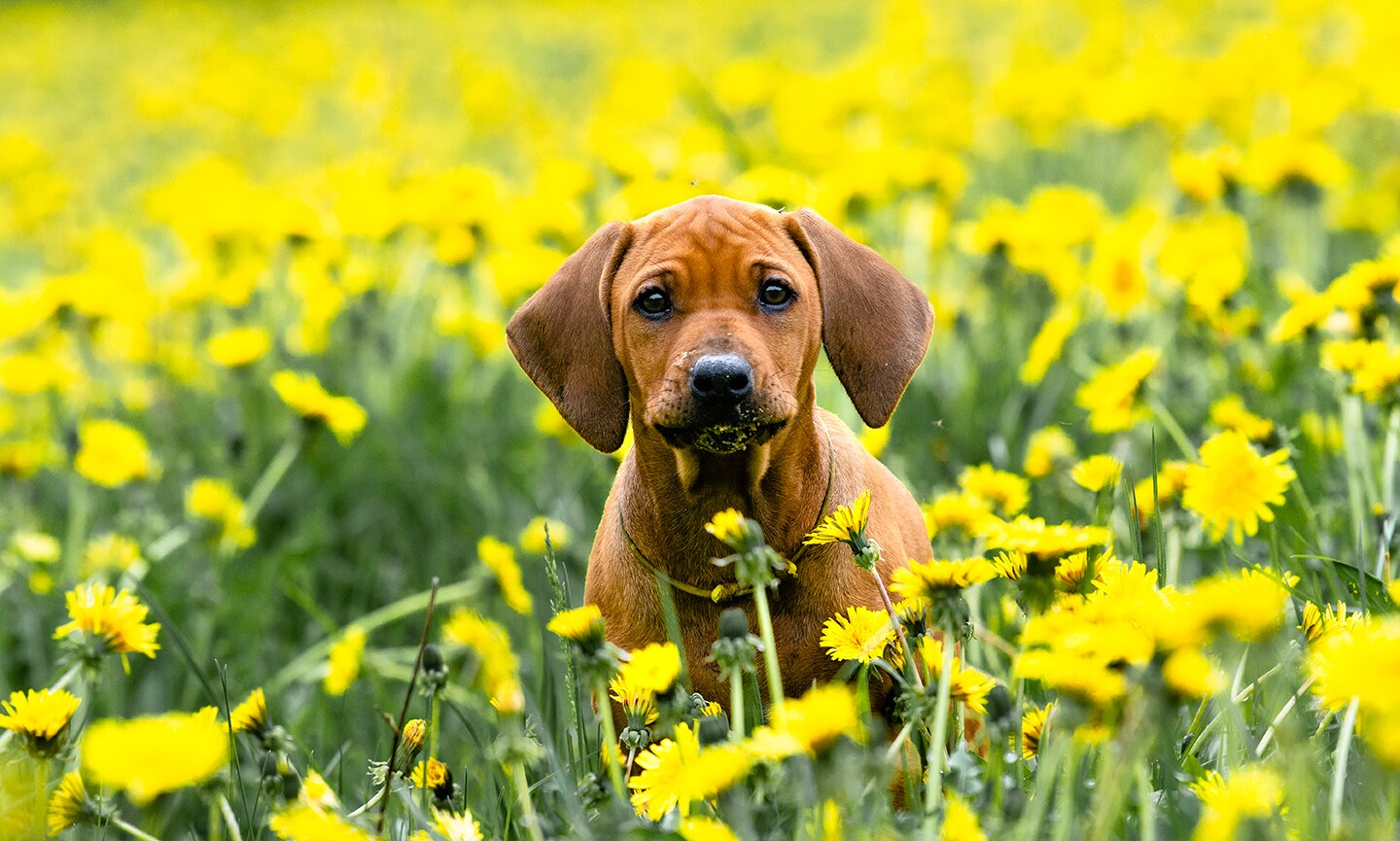
Assessing Rhodesian Ridgeback Puppy Health and Temperament
Health Screening and Testing for Rhodesian Ridgeback Puppies
When considering a Rhodesian Ridgeback puppy, one of the most crucial steps is to ensure the puppy’s health. Responsible breeders conduct comprehensive health screenings to minimize the risk of genetic diseases. Here are some essential health tests to look for:
- Hip and Elbow Dysplasia: Ensure that the breeder screens for hip and elbow dysplasia, which are common issues in larger breeds. Look for certification from organizations like the Orthopedic Foundation for Animals (OFA).
- Heart Health: Cardiac evaluations are essential to rule out hereditary heart conditions. A reputable breeder will provide documentation proving that heart tests were conducted.
- Dermoid Sinus: This breed can be prone to dermoid sinus, a condition where abnormal skin cysts develop. Responsible breeders should know how to handle this issue and may provide information on the testing done.
As a personal example, when my brother decided to adopt a Rhodesian Ridgeback, he prioritized finding a breeder who could show results from health screening tests. This foresight ensured that his puppy, Max, grew up healthy and vibrant.
Socialization and Behavioral Assessment of Rhodesian Ridgebacks
Socialization and temperament are equally vital aspects in fostering a well-rounded Rhodesian Ridgeback. Early socialization can help mitigate behavioral issues later on. Here are some strategies:
- Expose to Various Environments: During their early weeks, puppies should be introduced to different surroundings, people, and other animals. This exposure helps them to become adaptable and confident in various situations.
- Playdates and Training Classes: Enrolling your puppy in obedience and socialization classes can foster good behavior. Interaction with unfamiliar dogs and people helps reinforce positive experiences.
- Observe Temperament: Pay attention to how the puppy interacts with littermates and humans. A playful and curious temperament indicates a well-adjusted puppy that is likely to thrive in a family environment.
A friend of mine used to host puppy playdates, which not only helped in socializing her Rhodesian Ridgeback but also allowed her to learn more about the breed’s unique personality traits. Those little gatherings strengthened her dog’s skills and enhanced their bond.
Overall, assessing health and temperament in Rhodesian Ridgeback puppies establishes a foundation for a lifetime of health and companionship. By prioritizing these factors, prospective owners can ensure they’re making an informed decision, paving the way for a happy and fulfilling relationship with their new furry friend.
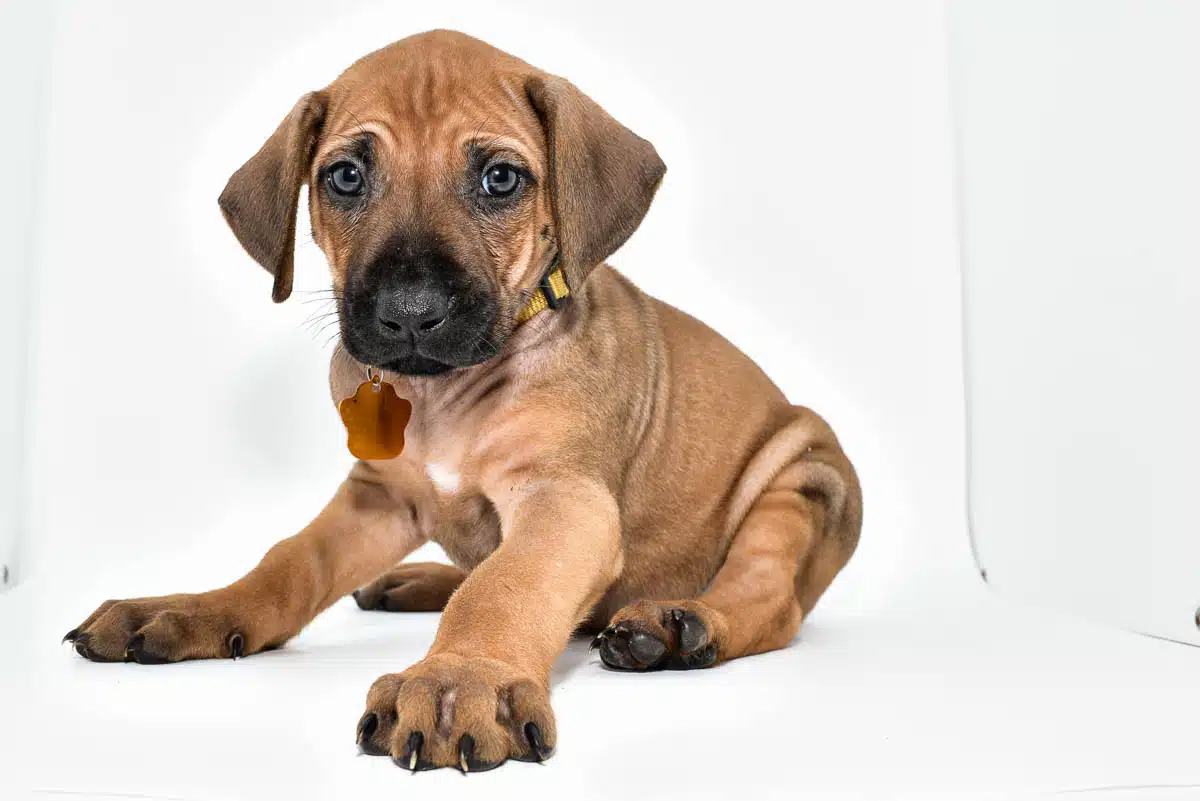
Adoption Process and Bringing Home a Rhodesian Ridgeback Puppy
Application and Adoption Procedures from Breeders
Once you’ve identified a reputable breeder and determined that a Rhodesian Ridgeback puppy is the right fit for your family, the adoption process is the next critical step. It’s essential to understand the procedures that reputable breeders may have in place:
- Application Form: Many breeders will require prospective owners to fill out an application form. This helps them assess whether you are a good match for the puppy. Be prepared to answer questions about your lifestyle, home environment, and any previous dog ownership experience.
- Interview: Expect to have an interview with the breeder. This may take the form of a conversation over the phone or in person. The breeder wants to know about your expectations, and it gives you an opportunity to ask any lingering questions.
- Deposits and Contracts: Once approved, you may need to place a deposit to secure your puppy. Additionally, breeders often provide a contract that outlines responsibilities for both parties, including health guarantees and return policies.
When my sister adopted her Ridgeback, she appreciated how thorough her breeder was. The interview process helped her ensure that she was ready for the responsibilities of puppy ownership, while the breeder’s guidance made the transition smooth.
Preparing Your Home for a Rhodesian Ridgeback Puppy
Preparation is vital before bringing your new puppy home. Establishing a safe and welcoming environment helps your Rhodesian Ridgeback settle in comfortably. Here are some practical steps to take:
- Puppy-Proofing: Ensure that your home is safe for a curious puppy. Remove hazardous items, secure cords, and put away anything you wouldn’t want chewed or swallowed.
- Designated Space: Create a designated area for your puppy to sleep and play. A cozy bed, puppy pads, and some toys can make this area feel homey.
- Supplies: Stock up on essential supplies, including:
- Food and water bowls
- High-quality puppy food
- A collar, leash, and ID tag
- Toys for chewing and stimulating play
- Health supplies like grooming tools and puppy shampoo
A friend of mine used to tell me how she went all out in preparing for her new Ridgeback. From painting a corner of the living room with non-toxic paint for the puppy’s area to purchasing a slew of chew toys, she made her new furry companion feel like a true part of the family before he even arrived.
The adoption process and home preparation steps create a solid foundation for welcoming your Rhodesian Ridgeback puppy. By being well-prepared and proactively engaging with your breeder, you can make the transition into puppy parenthood enjoyable and successful. With proper planning, your new companion will quickly feel at home, ready to bring joy and adventure into your life.
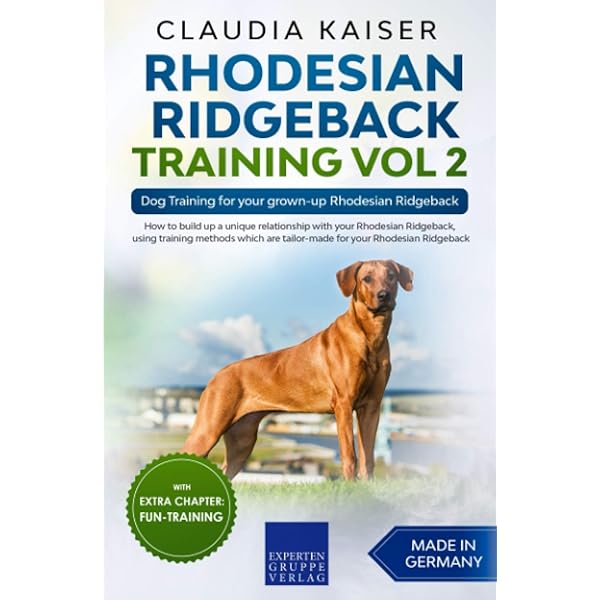
Caring for Your Rhodesian Ridgeback
Nutrition and Exercise Guidelines for Rhodesian Ridgebacks
Caring for your Rhodesian Ridgeback involves understanding their unique nutritional needs and ensuring they receive adequate exercise to thrive. These dogs are active and energetic, requiring a diet that supports their health and activity level.
- High-Quality Dog Food: Choose a well-balanced commercial dog food formulated for large breeds. Look for options that list meat as the primary ingredient and avoid those with fillers like corn or soy.
- Portion Control: Before delving into meal proportions, it’s helpful to consider your puppy’s age and weight. Adult Rhodesian Ridgebacks typically require about 2 to 3 cups of food daily, divided into two meals to prevent bloat.
- Hydration: Fresh, clean water should always be available, especially after exercise. Ridgebacks can easily overheat, so keeping them hydrated is crucial.
- Exercise Routine: Aim for at least 60 minutes of exercise daily. Activities can include brisk walks, playtime in the yard, or trips to the dog park. A well-exercised Ridgeback is a happy Ridgeback!
When my uncle adopted his Ridgeback, he discovered that daily runs in the park not only helped keep his dog in peak condition but also strengthened their bond. It turned into a routine both looked forward to!
Training and Grooming Tips for Rhodesian Ridgeback Owners
Training and grooming are vital components of responsible pet ownership. A well-trained Ridgeback is not only a joy to have around but also easier to manage.
- Training Basics: Start training early using positive reinforcement techniques. Rhodesian Ridgebacks respond well to treats and praise, so be consistent and patient. Basic commands like sit, stay, and come should be your starting point.
- Socialization: Introduce your puppy to various environments, people, and other animals. This helps prevent behavioral issues and makes your Ridgeback more adaptable.
- Grooming Needs: Thankfully, Rhodesian Ridgebacks are low-shedding dogs with short hair. Routine brushing with a rubber curry brush can help minimize loose hair and keep their coat shiny. Bathing should be done as needed, typically every few months or if they get particularly dirty.
- Nail Care: Regular nail trimming is crucial. If you can hear their nails clicking on the floor, it’s time for a trim. This helps prevent discomfort and potential injury.
One of my friends shared how her Ridgeback, after attending training classes, transformed from a wild puppy into a well-behaved companion, much to the delight of their family and friends. This positive experience highlighted the importance of consistent training.
By following these nutrition, exercise, training, and grooming guidelines, you’ll be well-equipped to care for your Rhodesian Ridgeback. A healthy, well-trained dog will not only enrich your life but will also breed mutual respect and love between you and your furry companion.

Leave a Reply